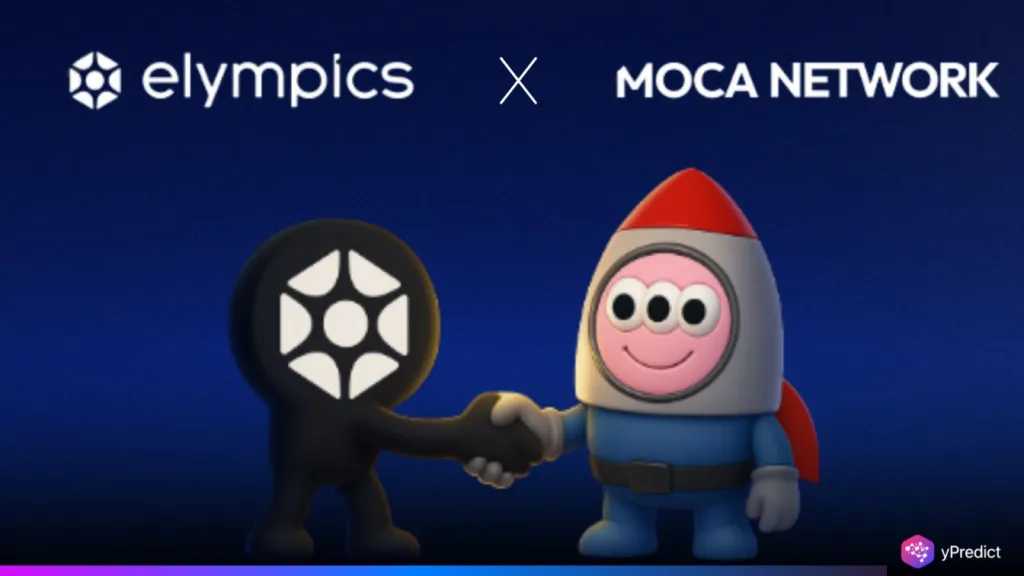
Elympics is contributing towards the change in the gaming industry that takes Web2 studios into the Web3 environment. The platform provides infrastructure to creators of competitive blockchain games to develop and monetize their skills-based games. The recent success stories, such as a sold-out presale of the $ELP token and the NFT drop, indicate emerging momentum. Its new collaboration with Moca Network further expands on the potential of the platform by bringing in a verifiable identity to the gameplay. With Web3 gaming still in its infancy, Elympics seems to be in a strong position to be a deciding factor in these areas due to its business and technology differences.
Partnerships and Industry Transition
Elympics’ strategy centers on helping established Web2 game studios transition into the decentralized Web3 ecosystem. Reports show the company has teamed with several big studios, including one with over $75 million in yearly revenue and another with over 600 million downloads. These partnerships imply a genuine desire among conventional developers for blockchain solutions, especially those that increase monetization and player control.
The company’s “Play2Win” framework makes blockchain integration viable for studios unfamiliar with Web3 mechanics. Unlike “Play2Earn,” which can be heavily speculative, Play2Win focuses on skill-based rewards and competitive integrity. It allows players to participate in games where winning depends on performance, not token farming or luck. This system supports tournaments, real-time leaderboards, and on-chain result verification, all key for attracting competitive players and studios seeking to preserve game fairness.
Elympics focuses on multichain flexibility too, allowing developers to use it in blockchain ecosystems instead of forcing developers to commit to the protocol. This corresponds to its general mission: to be the top-rated infrastructure in talent-based gaming and IP conversion. The platform tools, as well as partnerships, that Elympics has achieved are helping to give Web3 gaming a friendlier and practical face to both studios and players alike, which is an important first step towards Web3 gaming becoming more mainstream.
Recent Developments and Technological Innovations
In 2025, Elympics has hit key milestones that reflect growing user support and developer confidence. The sold-out Round 1 presale of its $ELP token validated community enthusiasm, while the launch of a 5,000 Shard NFT drop marked a successful gamified distribution event tied to the broader token sale. These milestones are more than marketing wins; they indicate a strong, participatory user base that’s eager to help build the platform’s future.
Among the most influential developments this year is Elympics’ partnership with part of Animoca Brands’ Moca Network. They are working to include the AIR Kit into the Elympics platform so as to facilitate verifiable identity in Web3 gaming. This enables gamers to demonstrate their skill level, accomplishments, and past by means of zero-knowledge proofs and dispersed identity verification. With complete openness and privacy protection, AIR IDs will be one-of-a-kind digital resumes illustrating a player’s performance in tournaments or on leaderboards.
This identity layer could reshape how matchmaking, rewards, and in-game interactions work, fostering trust between players while giving game developers more tools for fair design. It also opens up features like claim-gated events or performance-based progression systems. Combined with Elympics’ existing infrastructure, these advancements bring real-world utility to blockchain gaming.
Outlook and Future Potential
Elympics is emerging as a serious contender in the next era of gaming. By empowering studios with scalable Web3 tools and redefining identity with Moca’s AIR Kit, the platform sets a new standard for transparency, competitiveness, and user ownership. As developers seek practical ways to adopt blockchain, Elympics offers tested infrastructure and a growing ecosystem of engaged users. Its focus on fairness, verifiable performance, and real-time competition positions it ahead of speculative gaming projects. With momentum building, Elympics is not just bridging Web2 and Web3; it’s defining what the future of decentralized gaming could look like at scale.






